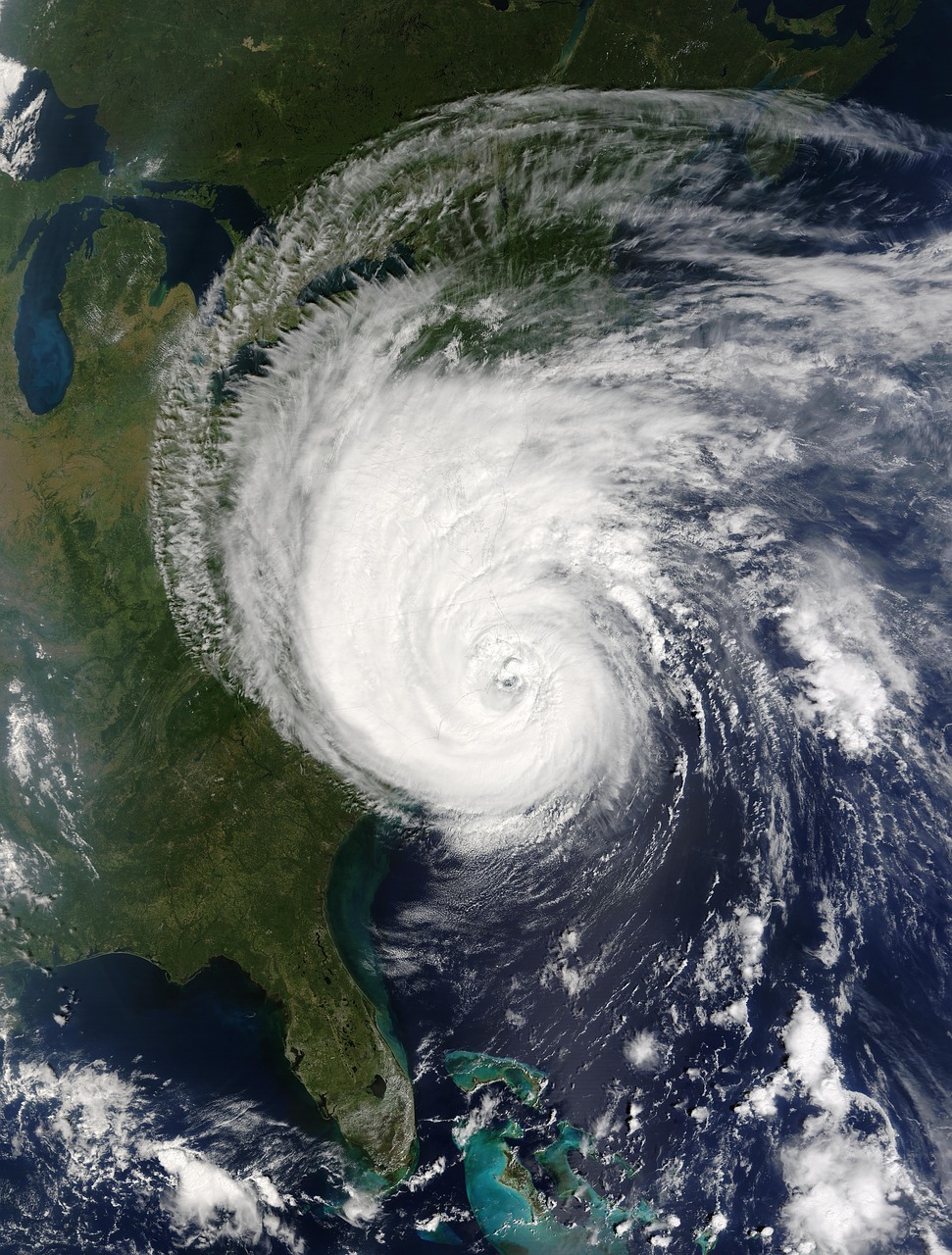
Hurricane season puts all property owners at risk, and that includes condominium owners. If you own a condo that has been damaged, you will likely need legal assistance with processing your claim. However, Insurance Claim HQ also wants to encourage condo hurricane preparedness by helping owners take proactive steps to protect their investments. Are condos safe in hurricanes? We’re here to answer that question and assist with all aspects of your claim.
Understanding the Importance of Hurricane Preparedness
Hurricanes are catastrophic events that can cause serious disruption to the food and water supply, the energy grid, and more. If a condo is not sufficiently prepared, it could be damaged far more than it would otherwise be.
But hurricane preparedness isn’t limited to securing your property. Since you could be without food, clean water, and power for days or weeks, not to mention being displaced from your property, you need to establish a comprehensive plan for what to do if a hurricane strikes. We will cover this below.
Steps to Develop a Plan
The time to create a condo hurricane preparedness plan is long before the inclement weather comes. We recommend you take the following steps:
Gather essential supplies
Since a hurricane can leave you displaced and unable to acquire basic necessities, start collecting these items now. We suggest obtaining the following:
- Food: Canned foods such as soups, fruits, and vegetables, along with peanut butter and dry cereal, have a relatively long shelf life. Once an approaching storm is closer, you can purchase perishable items like bread. Don’t forget a can opener, plates, and utensils.
- Water: You should store water ahead of time and have it ready to use in case of an emergency. Plan for one gallon of drinking water per day per person.
- Pet food: If you have pets, don’t forget them. It’s always a good idea to keep extra pet food in case of supply disruptions. You will also want to save up extra water for them.
- Health supplies: Aim for at least one week’s supply of prescription medicines, vitamins, contact lens solutions, and other items. Be sure you know where all medical devices are (such as hearing aids) and keep extra batteries for them.
- Safety supplies: Every family should have a first aid kit, plus an extra pair of good shoes and rain gear. Other safety items include a small radio, duct tape, batteries, chargers, pencils, plastic sheeting, and a tent.
- Personal items: Have personal care items such as toothbrushes, soap, feminine products, diapers, wipes, etc. available. Prepare extra sets of seasonal clothes and undergarments.
- Identifying information: It’s a good idea to secure vital documents like passports and birth certificates in waterproof containers. Always have your bank cards, driver’s license, and other everyday identifying information handy.
- Other items: If possible, have extra cash on hand since retailers and grocery stores may be unable to process debit and credit cards. Purchasing a generator (and having extra gasoline on hand) is a wise investment if you live in a hurricane-prone area.
Put together a communication plan
Families can quickly get displaced during a hurricane. Whether you live by yourself in a rural area or with a family in an urban environment, make sure you have a plan to reach others by phone, email, and other methods. Some families create group chats on apps like Telegram. It’s also a great idea to have a safe place where everyone knows to meet in the event communication systems are down for some time.
Roles and Responsibilities of Condo Management and Residents
Generally, management and homeowners associations (HOAs) are responsible for insuring against exterior hurricane condo damage. Meanwhile, individual condo owners should obtain their own policies to cover everything inside the residence like personal property, electronics, and furniture. They also need their own insurance for vehicles.
Condo management associations should know what their policies cover and be prepared to deal with delays, communication issues, and possibly claim denials in the event of a hurricane. Individual condo owners should expect the same. Both management associations and owners should take steps, detailed below, to protect their properties ahead of a storm.
Securing the Property: Structural and Exterior Precautions
Whether you are securing management-owned property or your own dwelling, there are a few simple steps you can take to minimize damage from a hurricane:
Reinforcement
You can install hurricane shutters, cover windows with impact-resistant glazing, or simply board up windows in the event of an imminent hurricane. Install hurricane clips to secure roof, wall, and foundation connections. Reinforce attached structures like porches, garages, and carports. If you cannot store boats and other recreational vehicles ahead of time, secure them to a well-anchored mooring system.
Remove outdoor items and debris
Before a hurricane hits, remove outdoor items like patio furniture, plants, and anything else that can easily be moved during a storm. Clear away trash and debris from your property, including broken limbs and anything else that can become a projectile during high winds. If you have long tree branches and limbs that extend over your roof, have those cut back. Securely anchor mailboxes, fences, and other heavy objects.
Evacuation Plans and Safety Procedures
To ensure you have and execute a proper evacuation plan, take the following steps:
- Once you identify a safe meeting place for your family, map out a route and share it (plus an alternate route in case of traffic or other contingencies)
- Make sure your vehicle has a full tank, has good tyres, and is up to date on all maintenance requirements
- Determine who will drive which vehicle if a hurricane strikes
- In the event of an approaching hurricane, remain calm and activate your communication plan
- Load all essential and personal supplies into your vehicles, lock up your property, and evacuate
- Avoid flooded or inaccessible roads and pay attention to warnings from emergency authorities
Insurance and Financial Preparedness
Most hurricane damage is considered nominal and is therefore covered out of pocket, whether by the condo association or the individual owner. That’s because deductibles have generally risen in Gulf Coast areas, making it difficult to reach the threshold for insurance to kick in. Be sure to check with your condo management or HOA to understand exactly what they cover and obtain a copy of their policy if possible. Read over your own policy if you haven’t checked it in a while so you know what it covers. Update your coverage as needed.
Legal Considerations and HOA Responsibilities
It’s important to understand that while your HOA or condo association may have insurance coverage for the property they own, you need your own insurance for the interior of your condo. This means having sufficient coverage to pay for your personal property and to provide for personal living expenses. The same applies to insurance coverage for your personal vehicles, boats, equipment, and other items that you own, which may be on or at your property. Check with our office to learn more.
Post-Hurricane Recovery and Damage Assessment
When it is safe to return to your condo, you should do so and begin documenting the damage. Remove (but do not yet destroy) any damaged items, using storage units if necessary. Try to have utilities re-established as soon as possible, but understand this may take time, and you might have to use your generator. Take numerous pictures and record videos of the damage, make a personal inventory of all losses, and take steps to mitigate the damage.
As soon as you are able to do so, open a claim with your insurer. Persistence will be key because you can expect delays with so many policyholders filing claims. Document all communications with the insurance company and follow the adjuster’s instructions.
Contact an Attorney for Legal Assistance
If you run into delays or other problems with your insurance, reach out to our dedicated team. We understand the laws that govern insurance companies’ responsibilities after a hurricane. We also know that many insurers will attempt to unjustly deny or underpay claims, depriving policyholders of the compensation they deserve. Let us help you get the payout you need to recover after your condo hurricane damage. Call today.
